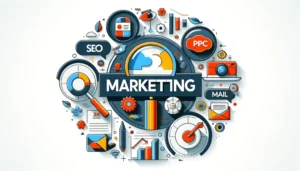The Future of Marketing Automation: Trends Shaping 2025 and Beyond
In the rapidly evolving digital landscape, marketing automation has become indispensable for businesses aiming to streamline operations and enhance customer engagement. As we approach 2025, several key trends are poised to redefine how organizations leverage automation in their marketing strategies.
1. Hyper-Personalization Through AI
Artificial Intelligence (AI) is set to revolutionize marketing automation by enabling hyper-personalized customer experiences. By analyzing vast datasets, AI can deliver tailored content, product recommendations, and communications that resonate with individual preferences, thereby boosting engagement and conversion rates.
2. Integration of Conversational AI
The adoption of conversational AI, including chatbots and virtual assistants, is on the rise. These tools facilitate real-time, personalized interactions, enhancing customer satisfaction and streamlining support services. Advanced chatbots, powered by natural language processing, can handle complex queries, providing efficient and effective customer service.
3. Omnichannel Marketing Automation
Consumers today interact with brands across multiple platforms. Omnichannel marketing automation ensures a seamless and consistent customer experience by integrating various channels—social media, email, websites, and mobile apps—into a unified strategy. This approach allows businesses to deliver cohesive messaging and engage customers wherever they are.
4. Advanced Data Analytics and Predictive Modeling
The future of marketing automation lies in harnessing advanced data analytics and predictive modeling. By analyzing customer behavior and preferences, businesses can anticipate needs and tailor marketing efforts accordingly. Predictive analytics enables more effective campaign strategies and resource allocation, leading to improved ROI.
5. Mobile-First Marketing Strategies
With the majority of consumers accessing content via mobile devices, adopting a mobile-first approach is crucial. Marketing automation tools are evolving to optimize content and campaigns for mobile platforms, ensuring accessibility and engagement on smartphones and tablets.
6. Enhanced Customer Journey Mapping
Understanding and optimizing the customer journey is vital for effective marketing. Future automation tools will offer more sophisticated customer journey mapping, providing insights into each stage of the buyer’s experience. This enables marketers to identify pain points and opportunities, leading to more targeted and effective campaigns.
7. Ethical AI and Data Privacy
As AI becomes more integrated into marketing automation, ethical considerations and data privacy are paramount. Businesses must ensure compliance with regulations and maintain transparency in data usage to build and retain customer trust.
Conclusion
The future of marketing automation is dynamic and promising, driven by advancements in AI, data analytics, and a focus on personalized, omnichannel customer experiences. By embracing these trends, businesses can stay ahead of the curve, delivering value-driven marketing strategies that resonate with their audiences.




